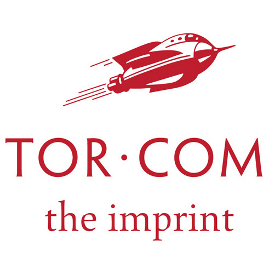Not long ago, my publisher (Orbit) released a new work by Lilith Saintcrow, The Hedgewitch Queen and they released it ONLY in ebook format priced at $2.99. This was the first time I had seen a major publishing house do a digital-only release, but predicted there would be a lot more in the future. And I was right.
Harper Voyager (the fantasy/science fiction imprint of Harper Collins) had an open call for submissions for a new digital-only imprint. From October 1 – 14, 2012 they received more than 4,500 submissions. In November 2012, Random House announced the formation of three digital-only imprints including Hydra, which will produce science fiction & fantasy works. Now I’m not an alarmist, and generally accepting of change, but I think there are legitimate reasons to be concerned with the emergence of digital-only offerings by the big-six, and before you sign on that dotted line, I’d like to give you some food for thought.
First, let’s break down what is being offered. Because digital-only contracts are so new, it’s difficult to say EXACTLY what the deals will be, but based on being involved in publishing through the digital revolution, and keeping my eye on postings about these changes, I think I have a pretty good picture of what is going on.
- No advances – In general, this doesn’t concern me. The reality is that a new author just wants to get their books “published” and advances for new fantasy works generally are $5,000 (spread over several payments), so we really aren’t talking about a great deal of money. Any book that would warrant a more substantive advance ($50,000+) won’t be done through one of the digital only imprints.
- Possibility of print as well: This is a carrot that gets most authors drooling. Two things about this concern me. First, I don’t think it will happen very often, and second does that mean you have to turn over print rights as well? It seems to me that publishers need to “use them or lose them” if they want print rights – then they should give you a full deal and produce both, but I don’t want them encumbering a right (and thereby preventing me from exploiting it) just to find them sitting on it. If I were an author considering signing on the dotted line I would say, “Look you are buying digital-only, so I’m selling digital-only. If you later want print, come back and see me, but in the meantime I’m holding onto it.” My guess is that they won’t see it this way, and they will want you to give up this right.
- Editorial support: Okay so this is indeed a valuable thing they have to offer…if they really follow through. Generally books go through two editing processes: structural – which looks at the book at a high level and points out issues with pacing, character development or plot holes; and copy editing, which is making sure all the commas are in the right place and there are no typos or grammar errors. I suspect that you’ll get some of the second (copy editing) and next to none of the first. The issue then becomes at what cost is this benefit worth?
- Cover design: Also something of value as the publishers have a good eye for knowing what sells (most of the time) and the covers they produce are professional (again most of the time). But as with any financial decision, the costs have to be weighed. So let’s table this momentarily.
- ebook formatting – One of the things that most self-published authors are surprised to learn is just how easy it is to produce ebooks from manuscripts. There are numerous books and on-line guides, and you can learn how to do it the conversion in four hours, and perform the work for each book in just two (including proofing).
- Royalties: This is the thing that I’m most interested to hear about. My guess is that they’ll be offering “industry standard” royalties which is 25% of net which generally breaks down as 52.5% to the publisher and 17.5% to the author. This is my single biggest complaint with traditional publishing today. It makes little sense for such disparity to exist. In the print side of the house the publisher has a lot of additional costs: printing, warehouse fees, promotional copies given away free to reviewers/bloggers, shipping, and returns. So I’m willing to concede some additional revenue going their way to offset those expenses. But for ebooks, the royalty is paid on net proceeds and I don’t think that the publisher provides three times more value to the project than the author who spends months or years writing the book. Ideally these ratios should be reversed. The author receiving the 52.5% and the publisher the 17.5%, I don’t think this will happen. They might do a 50-50 split (although I’m betting on the fact they will do the standard), but even then the author is only making 35% of the list price.
- Credibility – While in some respects seeking validation is pure vanity, I understand the mindset…and believe there is real value in being able to say that someone else outside of you and your friends and family have put a stamp of approval on your work. Also there is the fact that in genre fiction many readers do follow a favorite publisher and they are likely to find out about your book just by browsing the latest offerings released by them. What does concern me, however, is that you may wind up in a club that you don’t want to be a member of. I’m a bit concerned that the digital-only imprints will be looked upon as the “second string” or “minor leagues.” I think their standards might be lower as quantity may be the sacrificed over quality. Then you may find yourself not having the cache you thought you were going to get, or worse yet being being branded as “almost” a player.
- Marketing – Like the carrot of print, I think the reality will be found lacking. Large publishers are known for spending huge marketing dollars on the big-name titles and little to nothing for the mid-list and below. I believe the digital-only contracts will be offered to the low-hanging fruit and little to no resources will be contributed. That being said, if the publishers were really smart they would look at this as an opportunity to really kick-start direct to consumer marketing, but based on publisher’s track records, I’m not optimistic that this will be the case. Still, I see this as a moot point, as my opinion is no matter how you are published you’ll need to do your own marketing.
- Pricing – To me this is one of the big wildcards in the offering. If I were a betting man (and I am) my guess is they will put these titles out at a significantly lower price than a book released through their standard “full service” contract. My guess is $2.99 – $4.99 which is the price that most self-published authors are finding works for them. In some ways this is good, as the lower price has the potential for greater sales, but on the downside it means that you don’t look much different from the self-published authors. If this is the case, why not just go self-published? At least then you would have the flexibility to offer sales or free copies to “goose” your sales.
- Rights reversions – Historically authors dread being dropped by their publishers, nowadays there are authors begging to be dropped as they could make more by self-publishing a poor performing book that is not currently in their control. I’m not sure what the reversion clause of these contracts will say, but at a minimum you should ensure that if the book is not earning a reasonable sum of money, then it should be reverted to you. My guess, however, is the threshold the publisher puts forth will be obscenely low.
As you can see, what is being offered really doesn’t sound all that bad of a deal…so why such a cautionary tone in the headline of my post? Well the answer is simple. By in large any book that is good enough that it would be offered a contract by these digital-only imprints wil do better through self-publishing, assuming that the author can professionally package the book. While this sounds like I’m expressing an opinion, there is actually a lot of facts to back my statement up. Let’s run some numbers and compare.
If I were to guess, I would think that a book sold to the digital-only market place would be considered reasonably successful if it sold 5,000 copies at $3.99. I’m going to assume that you’ll sell 10% more books because of having the imprint name so when published through a digital-only imprint 5,500 copies will be sold. Assuming industry standard royalties for both traditional and self-publishing the net to the author would be:
- $3,840 if traditionally published ($3.99 x 70% x 25% X 5,500)
- $13,965 if self published ($3.99 X 70% x 5,000)
That means you are paying $10,125 for the publisher’s editing, cover design, formatting, and the prestige of having their imprint. A pretty high price to pay. And the more successful the book, the greater the disparity. When I was self-published I sold 70,000 copies of books priced $4.95 – $6.95 (across 5 titles) and that was before I became well-known. I saw multiple months were my sales exceeded 10,000 a month! If we assume 10,000 copies (across the life of the books) the differential is $20,249.
So what are the cost for these services? Well if you shop around it is possible to get the following prices:
- Copy editing/proofing: $350 – $500 per editor it may be worth hiring two at this price
- Cover design: $150 – $500
- Formatting: $50 – $100 or just do it yourself – it really is quite easy.
That means a total cost of $550 – $1,600. Which means your total income on 5,000 books would be $13,415 – $12,365 or 350% – 322% more than if you take that digital-only deal.
Now some may say, “Yes but if I self-publish I won’t sell 5,000 books. Most sell only a few hundred.” That’s a subject for another post and I’ll cover that in more detail in the future. But here’s the important thing. The most important criteria to sales is writing a good book. The problem when self-publishing it’s hard to judge if you’ve written something of sufficient quality…but the mere fact that one of these publishers has picked you has proven that fact.So, my recommendation…submit to a digital only imprint…but if they offer you a deal, think twice before you sign and examine the small print carefully. In the long run it might be the right validation to give you the courage to go forth on your own.











Very true – but this will just mean that paper copies, especially those that are signed, are that much more rare and valuable. The whole ebook market is based on the opposite of scarcity. You want to get the books into as many hands as possible (and some authors even encourage piracy because they want people reading/talking about their books and studies show a widely pirated book is a good selling book (although not sure which is the chicken and which is the egg in that case).
Still, there are people developing solutions for signed ebooks. I actually use KindleGraph – which is a neat (and free) service. For instance you can ask for signed/personalized kindle pages or my books from this link: https://www.authorgraph.com/author/author_sulliva…
Paper books will always exist (for the largest titles) . At some point there will be someone who will enable a "limited number" of signed ebooks such that if you have one it is "rare" but since you really can't re-sell ebooks like you can print – that makes it really just a novelty for the reader – which is fine with me.
As someone who sold books (new & used) for nearly 20 years I have to say that the ebook revolution has left aside one or two of the biggest marketing aids I used to have: scarcity and my ability to get it personalized by the author. (I know a lot of writers.) What is the equivalent of a signed/numbered/limited edition or signed copy of an ebook? Short availability? A digital key?
How do you get the book signed by the author, illustrator, or editor if you wish?
Other than being a completest or reader, many book collectors strive to find that one perfect copy of Amazing Stories vol 1, #1 or Fahrenheit 451 in all of its printings, or . . . what is a comparable collection for electronic editions? Every possible OS or format? Does a book go “out of print” when a new OS is introduced? A new reader?
If you want a hardcover Neil Gaiman book, you either have to buy it when it was published or find it used later. The marketplace will probably come up with something comparable for ebooks, but as long as identical books are potentially available forever to everyone, the desire to get one now before it vanishes will be nonexistent.
Yes indeed, regardless of how you are published you better do your own marketing or resign the book to going nowhere.
Glad you liked the post. One thing to keep in mind regarding ebooks – is you can (usually) adjust the font size – which helps with poor eyesight.
Self-publishing your own work is very viable – just keep at it and produce the highest quality book you can and if you do well enough, and get it in the hands of some initial readers, it will do well.
A good article. I'm going to be publishing a digital book in awhile and I've been looking over the market, and I looked at some data that indicated (as you did) that you reach a point of diminishing returns when you price a book over five dollars, where fewer sales mean you make less money.
One of the realities that exists for people who publish an ebook is that you are left with the responsibility of marketing your own work and it can feel pretty overwhelming. Unfortunately, it isn't necessarily true that someone who published you would really do much marketing for you anyway, so promoting your book is something an author simply has to get ready to do.
Well, Michael – – This article was very informative. I asked you about Ebooks ONLY in another of your recent blogs, but this answers that question quite handily. I've only recently started reading Ebooks because I've found them hard to read (poor eyesight and I don't want my eyes going south in more of a hurry than necessary).
One thing I find interesting in your arguments is, naturally, the resistance to paying authors decently. With all the talk you hear from certain quarters about Fair Trade for Third World products, I sometimes think of the original meaning of Utopia … U=not, topia=place. That is…no such place.
Edward Weston, a notable photographer, once advertised that his photographs were taken, developed, printed, matted, and framed by the same person. I'm looking forward to the day when I can advertise the same thing about my own work. To write, publish, market, and sell my own work independently. It may not happen tomorrow, but I still hold out that it will still happen in my own lifetime.